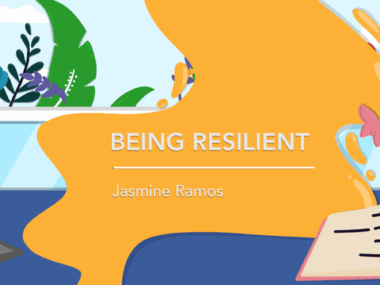Balancing Brain and Body
Written by |

(Photo by Brad Dell)
It’s only 5:30 p.m., but it feels later, probably because I’m writing this in the back of my family’s van, the pitch black of Minnesota’s winter broken by car headlights and the occasional billboard. We’re on our way to Myrtle Beach, South Carolina, where we’ll be spending the next week and a half — once we actually get there, of course. We still have a day-and-a-half of driving between us and the beach.
My mom has been talking about this trip for weeks, and while I’m excited to be by the water again, I’m more looking forward to the drive. It’s been a busy month so far, and we’re not even halfway through December yet. Between finals, my friends’ visits, and this trip, it feels as if I’ve been going nonstop for a while. I spent the past few days doing nothing at all, which is exactly what I needed after a weekend of sugar cookies and gift-giving and Dungeons & Dragons, but I’m still wiped. I had my biweekly massage today before leaving home, and my therapist said she could feel the tension build-up in the back of my neck.
I have a whole list of things I want to get done during the drive, but it’s a relatively short one. Apart from 2019 planning (because I’m a nerd like that) and some light book work, I’m taking it easy. And I’m excited. I like to think I’ve earned it.
Earlier today, when I told one of my best friends about the tension build-up in my neck, she said, “That makes sense. You’re a pretty tense person.” I had to laugh, because she’s right; I’m a very tense person, thanks to anxiety and a lifetime of medical trauma. Even when things are good, like they are now, I still feel like I’m waiting for the other shoe to drop. Part of it, I’m sure, is due to illness anxiety disorder (hypochondriasis), which I’m 99 percent sure I have. When you spend your childhood waiting for pneumonia to put you in the ICU, you become hyper-vigilant, attuned to anything that might be remotely close to a symptom.
To be fair, hyper-vigilance saved my life. I’m here today, writing this column at a gas station in La Crosse, because my parents drilled into me at a young age that I should avoid sick people like the plague (ha), and that I should pay attention to my body, to what my body is telling me. But sometimes it’s difficult to tune my body’s warning system. Take the past few days, for example. I’ve been a sluggish mess, tired and achy, beset by tension headaches and the occasional scratchy throat. Given the past couple of weeks, it’s not surprising — I’ve pushed my body to its limits. But I’m still left wondering if leaving on vacation is a good idea. We’re bringing all the equipment I could potentially need, but according to the voice in my head …
It comes down to balance. It always does. Vigilance is important, but hyper-vigilance is exactly what it sounds like. I’m still figuring out what it means to be in touch with my body without letting my body’s faulty warning system keep me from living my life. Ultimately, that’s what it comes down to. Anxiety can be productive, but most times it’s a hindrance.
So, I’m going to take the next few days to rest up. I’m going to take my vitamin supplements, just in case I am coming down with something. I’m going to mediate between my brain and my body, and I’m going to try to find a healthy balance. I can’t say for sure if I’ll be successful, but at least I’ll have a view of the beach. As always, my heart aches to be near the sea.
***
Note: SMA News Today is strictly a news and information website about the disease. It does not provide medical advice, diagnosis, or treatment. This content is not intended to be a substitute for professional medical advice, diagnosis, or treatment. Always seek the advice of your physician or other qualified health provider with any questions you may have regarding a medical condition. Never disregard professional medical advice or delay in seeking it because of something you have read on this website. The opinions expressed in this column are not those of SMA News Today, or its parent company, Bionews Services, and are intended to spark discussion about issues pertaining to spinal muscular atrophy.








Leave a comment
Fill in the required fields to post. Your email address will not be published.